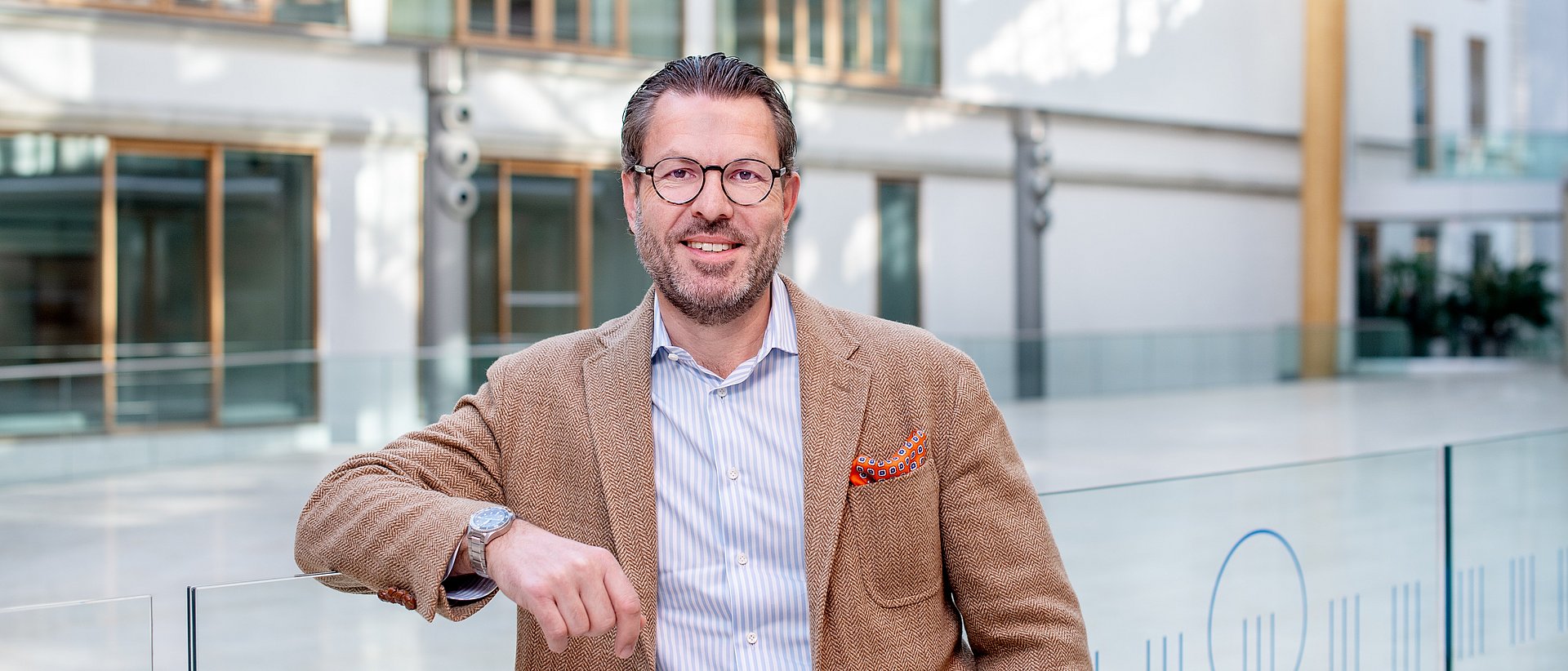Interview with Prof. Urs Gasser on technology and values
“What does society need from us?”

Professor Gasser, what prompted you to move from Harvard to TUM?
After almost 20 years in the USA, I was thinking about where, how and in what environment I wanted to spend the second half of my professional life. And when the opportunity came up to move to TUM, to return to Europe, it was simply the right fit. This is exactly the kind of environment where I can contribute. I like the TUM vision and the understanding of the changing role of the university in society. This energy appealed to me and I want to be part of it. I find it extremely exciting.
You are the founding dean of the new TUM School of Social Sciences and Technology. What are the biggest challenges?
In this newly founded school, we have the huge opportunity to ask ourselves on a fundamental level: What is the actual contribution that a social sciences institution of this kind can make at a technical university? What does society need from us in an era facing big upheavals – from climate change to the Covid 19 pandemic? The list is long. I see possibilities for very fruitful cooperation with the science and engineering schools at TUM.
How can the TUM School of Social Sciences and Technology benefit engineering students, for example?
I think that the challenge is to understand that we need to take a holistic approach to the necessary social changes in view of the crises of our time. The technical disciplines also need to recognize that the technologies that they are developing will ultimately only be successful and beneficial if they are seen in a social, political, economic and ethical context. That’s what’s behind “human-centered engineering”.
Are the students open to this approach? After all, they have enrolled to study physics, aerospace engineering or informatics – not social sciences.
I think the interest is enormous. If you look at who is engaged in the climate and social justice movements, these are the same young people who are studying at TUM. The big issues of the future and the social engagement it requires – that is the reality experienced by our students. Unsurprisingly, they show a strong interest in looking beyond their individual study areas. They also have incredible energy. We as a university need to build the bridges and interfaces between the various disciplines and harness this energy. The future belongs to young people. It is our task at TUM to prepare them and to join in shaping this future with the best research and the most innovative technologies – for the good of all people in this world.
In the pandemic we have seen that science and politics do not always come together immediately. Why is that?
In science we often operate on a different time scale than political decision makers have to live by. The pandemic is an example that illustrates how hard it is for us to coordinate the processes and logic of scientific knowledge creation with the decision-making pressures faced by politicians. Another aspect is the complexity. We scientists love complexity. But it is often difficult to get from there to general statements and bold policy recommendations. Politicians, by contrast, need to simplify things. They have to be able to communicate their decisions. These issues interest me. Good teaching alone is not enough. Excellent research alone is not enough. We as a university also have to get ideas across to society and the general public in an understandable form.
You’re still new at TUM. What are your observations so far? What defines TUM?
TUM is as a highly innovative university, as I already recognized from the outside. It makes a strong impression in that regard, whether it’s in entrepreneurship or in technical research in such fields as robotics or quantum engineering. TUM is defined by forward-looking and innovative planning, research and teaching. In this regard, many other universities appear to be facing in the other direction.
“Human-Centered Engineering”
TUM is responding to the rapid societal transformation in the age of digitalization and biologization: With TUM Agenda 2030, it is fundamentally reforming engineering sciences by combining them with humanities and social sciences to establish “human-centered engineering” in research and teaching. The road to human-centered and trustworthy innovations aligned with the needs of society will be made smoother above all by the fundamental reorientation of TUM’s governance structure through the new system of schools.
Technical University of Munich
Corporate Communications Center
- Ulrich Meyer
- tumcampus@tum.de
- presse@tum.de
- Teamwebsite
Contacts to this article:
Prof. Urs Gasser
Professorship Public Policy, Governance and Innovative Technology
TUM School of Social Sciences and Technology
e-mail: urs.gasser@tum.de
phone: +49 151 21919138